Till Death Puts Us Together in a Handmade Coffin
Rest in Peace in the Build of a Lifetime
On a bone-chilling January morning, in a quiet backyard workshop in Old Town, surrounded by the scent of freshly sanded wood and the gentle hum of hand tools, a craftsman devotes his time to an often-overlooked art: coffin-making.
For over a decade and a half, Luc Nadeau has meticulously shaped and assembled the final resting places of those who have passed, infusing each piece with respect, skill, and a deep sense of purpose through his business Nature’s Casket.
Nadeau’s passage into coffin-making was an unexpected one. A carpenter specializing in renovations, he found himself drawn to the trade nearly two decades ago after reading about the potential of utilizing neglected wood.
Nadeau primarily uses blue-stained pine, also known as beetle-killed pine, for his coffins.
“It’s lodgepole or ponderosa, generally from the Rocky Mountains, and it’s been attacked and killed by pine beetles,” Nadeau explained. “The epidemic has spread all the way up the Rocky Mountains, even into Canada. We’ve lost millions of acres of trees.”
Behind his house, Nadeau built the shop where he works, using materials such as blue-stained pine. He illuminated why this wood, though often neglected by traditional carpenters, is ideal for his craft.
“Carpenters are afraid of it—some are. Sometimes, if it’s been standing dead for a while, it’ll start to get wormholes in it, but not always,” Nadeau said. “But for me, it has character. The blue stain is actually from a fungus left behind in the waste of the beetles. It has this beautiful blue grain. I find those to be really fascinating.”
Nadeau acknowledged that one day, his preferred wood source may run out.
“In the next ten years, there won’t be much blue-stained pine available because it’s all been harvested or rotted,” Nadeau said. “I don’t think I will be able to stick to this wood forever, but I always want a wood that’s beautiful and eco-friendly.”
When discussing his work schedule, Nadeau admits that coffin-making is very much a part-time endeavor.
“Very part-time, very,” Nadeau emphasized. “I probably only put in about five to ten hours a week on the caskets. It varies a lot. If I get an order for three caskets, then I focus on that, but I try to always be prepared. I keep all the glue-ups ready so that if somebody needs a casket tomorrow, I can have it ready for them.”
While coffin-making has been a part of Nadeau’s life for years, it remains a side business rather than his primary source of income.
“At one time, I wanted it to be a full-time business. I was shipping these around the country,” Nadeau recalled.
However, the logistics proved to be a nightmare.
“Imagine if you have a casket that has to be used in Florida, and that funeral is in five days. You ship it, and it takes three days to get there, and something breaks on the way—that’s very stressful,” Nadeau said. “So, I stopped doing that. I only sell locally now.”
Today, many of Nadeau’s caskets go to Natural Transitions, a Boulder funeral home that specializes in natural burials.
“They’ve been working with me since the beginning,” Nadeau said. “I sell about half of my caskets wholesale to them, and the rest I sell retail.”
Working with a place like Natural Transitions, Nadeau views this as part of a broader cultural shift toward more personal funerals, since the focus of that business is to restore traditional funeral practices, where families take a more direct role in handling arrangements.
“There used to be a parlor in old houses. There are some here in town that have sliding doors because when somebody died, they’d sit in the parlor,” Nadeau shared. “They would keep that deceased person in the parlor for about three days. Family would have time to come in, visit the person, and it was just a lot more personal.”
Both of Nadeau’s parents are social workers, influencing his perspective on this labor of love. As a result, he has worked with many grieving families, particularly when selling directly to them, as it involves direct interaction and support.
“It’s pretty meaningful for people to be planning their own funeral, for their own family or for themselves. A lot of people have saved my article. They said, ‘I want to use this when I die.’ And then when they die, their kids or their spouse or whatever says, ‘They saved this article. They want this casket,’” Nadeau said, referring to past news coverage of his coffin-making.
Nadeau also mentioned a key legal change that made alternative caskets more accessible in the early 2000s.
“There’s a federal law that says every funeral home has to allow families to bring a casket from outside. They don’t have to buy it from the funeral home. And then Costco took advantage of that and started selling caskets,” Nadeau said. “People realized they had options. If funeral homes had a monopoly, they could charge $4,000 or even $10,000 for a casket. But if you bring your own, you can get something simpler, greener, and more affordable.”
Nadeau’s coffins have been placed in cemeteries throughout Colorado and beyond, including several in Mountain View Cemetery in Longmont. He has also supplied coffins to Arlington National Cemetery and Fort Logan National Cemetery, a veterans’ cemetery in Denver.
Nadeau’s work has led to some unique projects, including a disinterment case where he had to custom-build caskets to relocate an entire cemetery.
“One of the graves contained almost a ton of dirt. I had to build a casket about seven feet long and reinforce it with a metal frame to hold 2000 pounds of dirt,” Nadeau recalled. “That was one of my most interesting projects.”
Nadeau’s passion for woodworking goes beyond coffins with his YouTube channel, Poppa’s Cottage.
“The casket one is probably in the top five of my overall videos. I also did one where I built a coffin out of juniper, or aromatic cedar, and that quickly became one of the most active videos as well,” Nadeau said.
Nadeau has more plans for the channel.
“The main one I want to do is a simple pine box. Just making a regular rectangular casket out of this stuff. I’ve started to get a little footage for it, but I think that’s going to be my video that most people will look up,” Nadeau said. “A lot of people want to build their own simple pine box.”
Despite the somber nature of his trade, Nadeau sees his work as a service rather than a sorrowful duty. He believes in honoring life through the care he puts into each piece.
“People don’t always think about it, but a coffin is one of the last things a loved one will see before saying goodbye,” Nadeau said. “I want to make sure it’s something beautiful, something worthy of the person inside.”
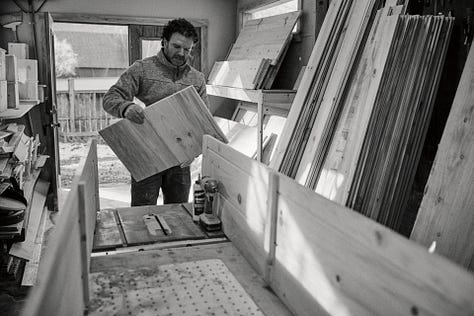

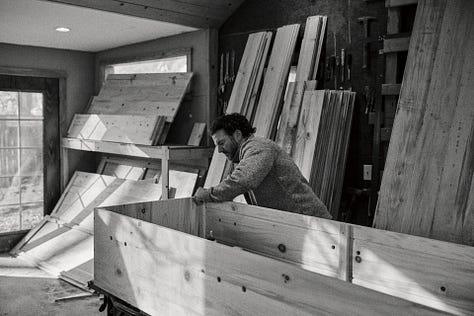
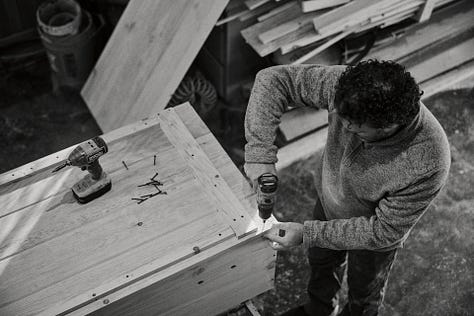
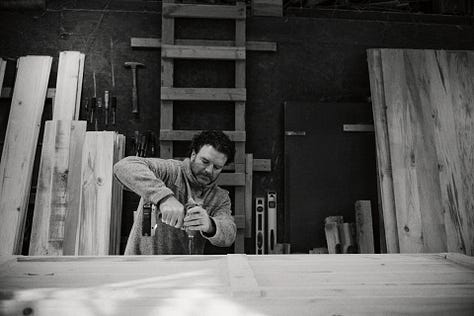
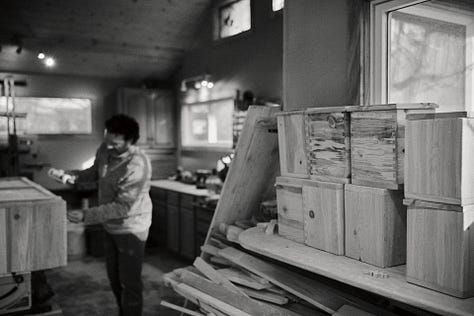

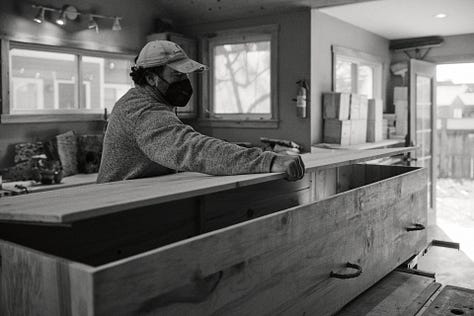
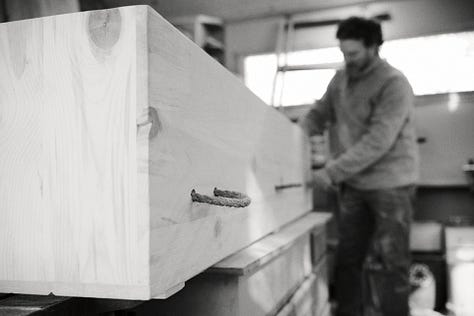


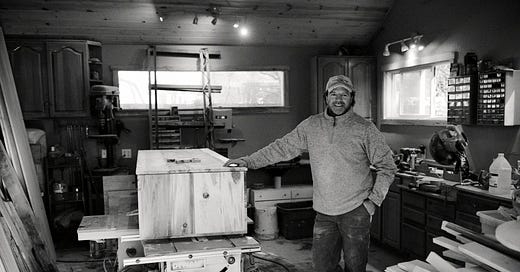




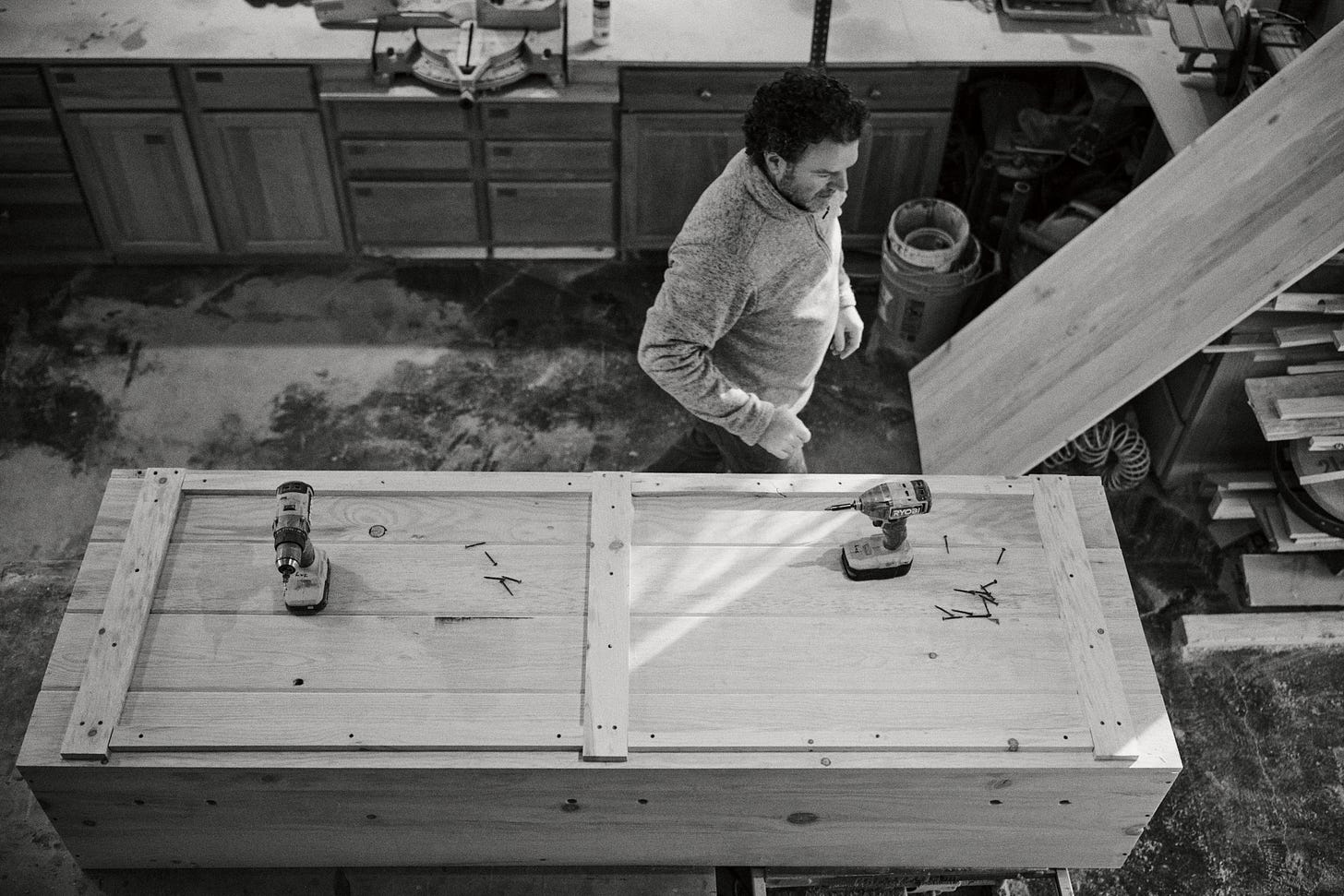
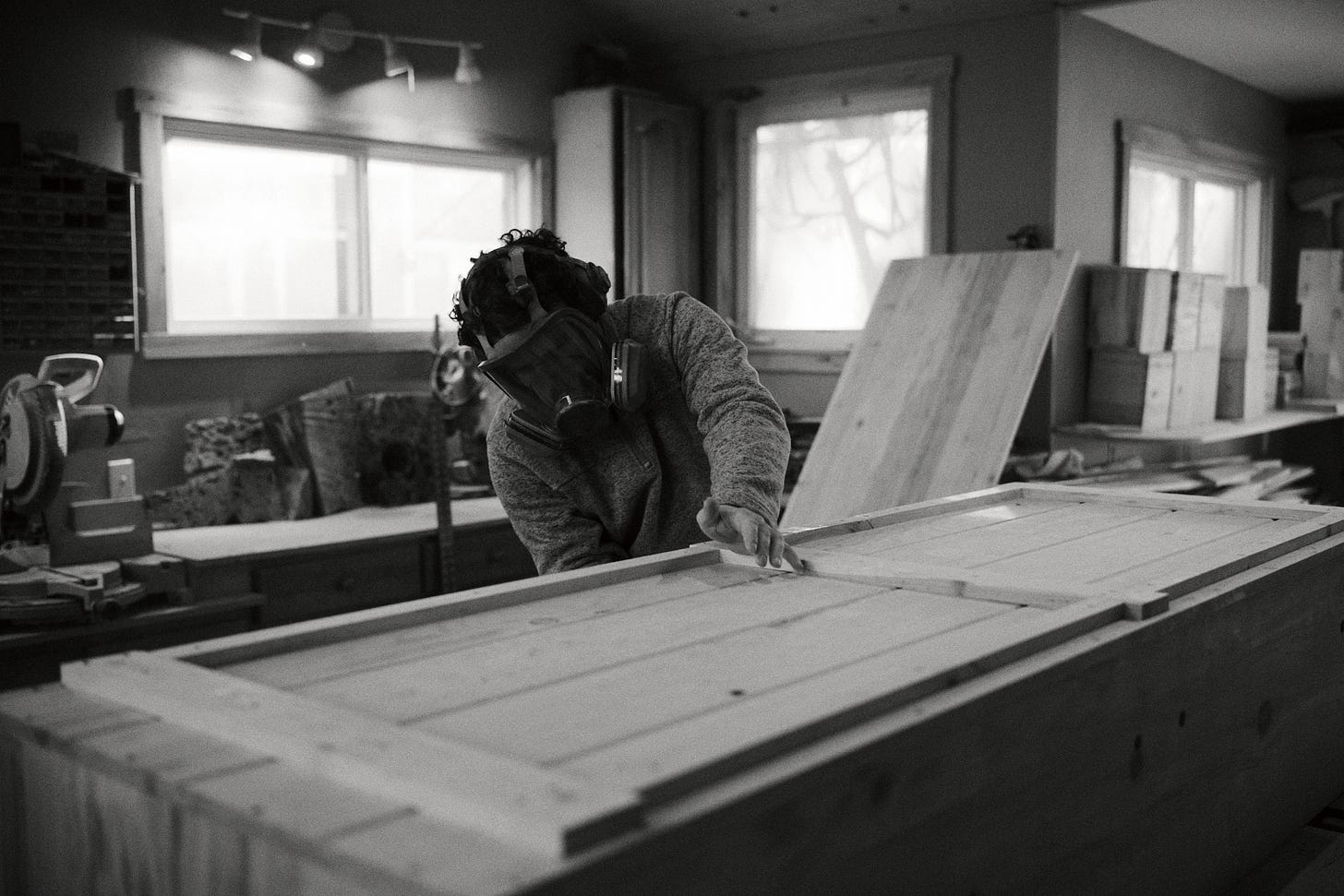
I love this idea